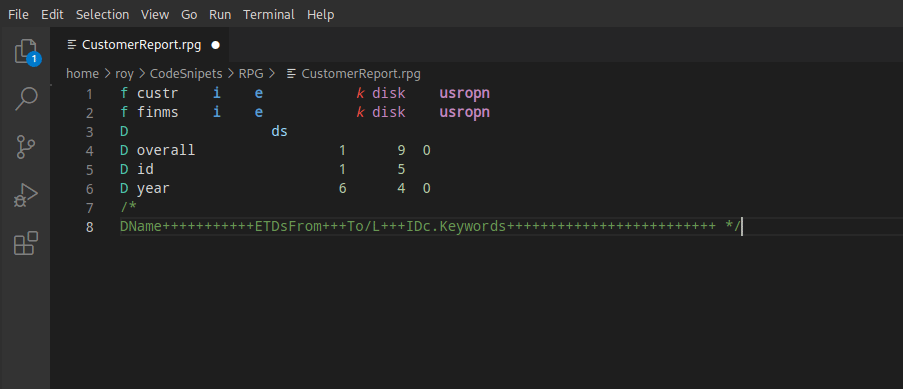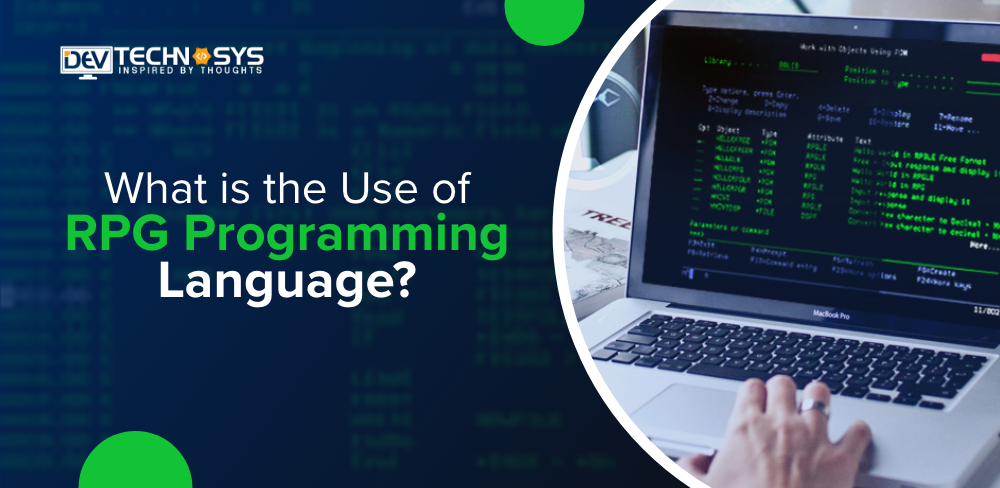RPG, also known as Report Program Generator. It is vital to know that RPG programming language is a high-level programming language that is scale based for commercial applications.
It is employed in the production of reports, invoices, and other types of commercial paperwork. RPG has been around for a while and has undergone several modifications to keep up with the most recent technological developments. RPG is a helpful language for businesses because it is easy to learn and utilize.
As a result, it is a perfect option for establishments that need to automate their procedures. The language is used to create dependable programs to efficiently handle complex business processes and manage enormous amounts of data. Therefore, the moment has arrived for you to become familiar with some astounding RPG programming language facts.
What Is RPG Programming Language?

RPG (Report Program Generator) is a slightly elevated software application commonly used for enterprise applications on the IBM I (formerly known as AS/400) platform.
It has since been expanded to support several commercial applications, even though its original purpose was to be utilized in creating accounting and financial systems.
Programming language RPG is recognized for managing enormous amounts of data and being user-friendly for developing business applications. Commercial organizations frequently use it to automate their financial and accounting processes, inventory management, and order processing. Programmers have more latitude when developing programs because the language supports fixed-format and free-format syntax.
What Is The Use Of RPG Programming Language?
RPG (Report Program Generator) is an IBM RPG programming language that can quickly and effectively access databases and perform operations, including data input, retrieval, calculations, and database access.
RPG is frequently used to create:
- Financial and accounting applications
- Inventory control and management systems
- Order processing and management systems
- Payroll and human resource management systems
- Supply chain management and logistics systems
RPG programing language is a well-liked option for both major corporations and small and medium-sized firms because of its simplicity and adaptability. RPG is a fantastic option for individuals wishing to develop commercial applications on the IBM platform because it has a sizable user community and a wealth of tools and resources.
Why Learn RPG Programming?
RPG (Report Program Generator) programming language was created especially for commercial and enterprise applications. Many job prospects in business computers and information technology can be accessed by learning RPG programming. The following are some justifications for thinking about learning RPG:
1. RPG Developer Demand:
Many businesses, particularly those in manufacturing and distribution, continue to utilize RPG extensively. RPG developers continue to be in high demand as long as companies use old systems.
2. Career Growth:
RPG programmers can specialize in a particular area of business computers, such as inventory control, supply chain management, or financial reporting. Higher earnings and possibilities for growth may result from this concentration.
3. Versatility:
Database administration, report generation, and interactive user interfaces are just a few of the many applications RPGs are helpful for.
4. Connection to IBM I
Large businesses frequently employ IBM I systems, which heavily rely on RPG. As a result, RPG programmers can deal with various technologies, such as databases, web services, and mobile devices.
5. Effortless Use:
RPG is renowned for its straightforward and uncomplicated syntax, which makes it simple for developers to understand and utilise. For people with little programming knowledge, this can be extremely helpful.
6. A robust community
The robust and helpful RPG community makes it simpler for new developers to get started and receive assistance when they do.
7. High Pay:
RPG programmers often earn competitive wages with programmers of other programming languages.
In conclusion, mastering the best programming language for RPG games might have various advantages, such as job advancement, adaptability, simplicity, and fantastic compensation. RPG is a language that is unquestionable to take into consideration if you’re thinking about a career in business computing.
History of RPG Programming Language
IBM created the high-level programming language RPG (Report Program Generator) in the late 1950s. It was initially intended to be used with IBM’s System/3X mainframe computers as a report-generating language.
- Business customers with little to no programming knowledge can more easily produce their bespoke reports using RPG because it was one of the first programming languages to employ English-like statements and a more straightforward syntax.
- RPG has developed throughout time to include more cutting-edge capabilities and features, including support for interactive applications and data-driven decision-making.
- IBM released numerous new RPG versions in the 1970s and 1980s, including RPG II, RPG III, and RPG/400, which enhanced performance and offered new capabilities.
RPG came under fire for its constrained functionality compared to more contemporary languages like Java and C++ in the 1990s with the emergence of client-server computing and the expansion of the Internet.
Despite these difficulties, RPG is still a common language for business applications, particularly on the IBM I (previously AS/400) platform. It is frequently used for unique business applications, data access, and report generation.
IBM has made substantial investments in the modernization of RPG, providing support for cutting-edge technologies like web services and modernizing the syntax and grammatical structure of the language. RPG is still a vital programming language for many firms today, and it is constantly changing to match the demands of contemporary businesses.



























